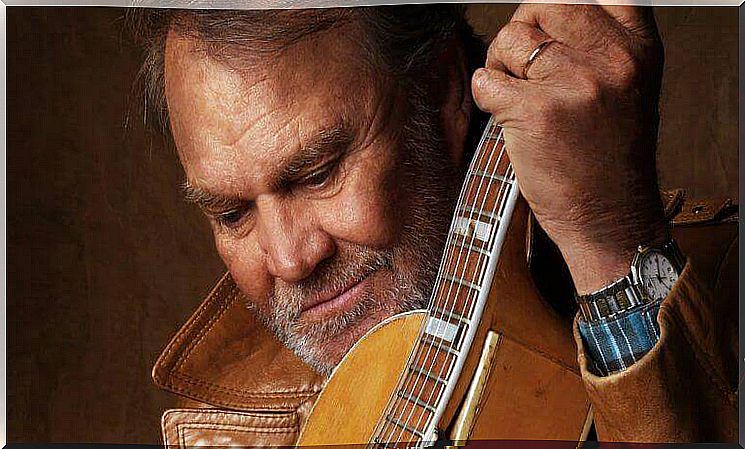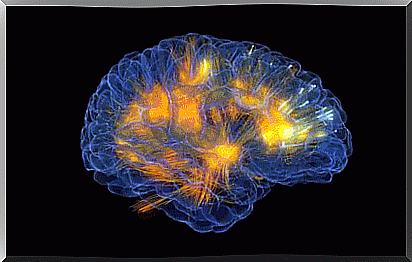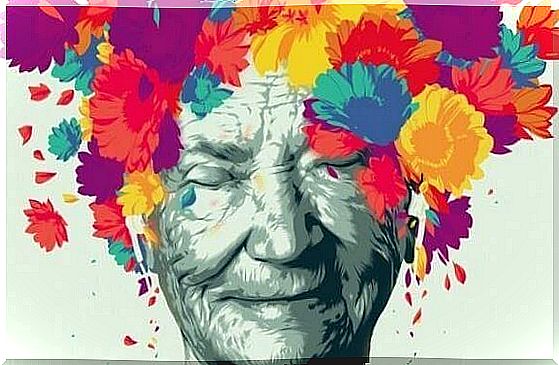Music And Alzheimer’s: To Arouse Emotions

There is a strange but fascinating connection between music and Alzheimer’s. The patients who are in a later stage of this disease may experience an emotional awakening when they are allowed to listen to a song from their childhood. Music has the ability to unlock memories and amazing emotions…
Some say it’s a mystery. Neurologists say that it has to do with areas of the brain being linked to a musical memory, but that we do not yet know how this works. On the other hand, psychologists, therapists and the family members who take care of their loved ones with Alzheimer’s on a daily basis know that music is a consolation for people suffering from this devastating disease.
Many people recognize the name Glen Campbell. He was an icon in country music in the United States in the 60s and 70s. He died not so long ago after a long battle with Alzheimer’s. He had lived a life full of success and unforgettable experiences, but had to go through a disease that erased all this from his memory.
From a clinical perspective, however, the case of Glen Campbell has been very interesting: he never stopped singing or playing his guitar. When he played and sang, he also managed to recover temporarily to the point that he could tour. During his gigs, he sometimes talked to the audience and said that he had managed to avoid alcohol, but not that “disgusting” disease.
It is a fascinating case and a story that makes us ask the question: what is the connection between music and Alzheimer’s?

Science has always been aware that there is a special connection. The progressive degradation of the brain does not affect the structures associated with musical memory. It was not until recently that, thanks to new techniques for taking nerve images, one manages to observe something interesting:
According to a study conducted at the Max Planck Institute for Cognition and Brain Science in Leipzig, the researchers succeeded for the first time in locating the areas of the brain that are related to musical memory. As expected, they discovered that this area was almost completely intact.
The research leader was seated until recently, believing that our musical abilities were in the temporal lobe. However, the tests showed something else: the music memory is located in the motor centers of the brain, and Alzheimer’s has very little effect on this part of the brain.

There is also another interesting aspect. As the disease increasingly destroys the cognitive processes, it is as if the brain tries to save itself and the person’s essence by activating the areas that are related to music and emotions.
The brain is lying there waiting for the music to bring the emotions to life and make us regain those lost memories…
When a person with Alzheimer’s hears a melody that he recognizes, the following occurs:
- Reduced anxiety and worry
- Reduced irritation
- Improved mood. The person manages to reconnect to their environment. It is as if you manage to evoke emotions that until now have been on the shelf.
Since we now know that there is a very positive and direct relationship between music and Alzheimer’s, so maybe there are some of our readers who want to help a family member with Alzheimer’s with music. They want to make the person happy again and make them smile:
Let’s go through some guidelines on how to succeed with this in the best way:
- What kind of music does the person like to listen to? What were the songs, melodies, ballads or concerts during the person’s upbringing?
- Let the person listen to the music for a time of day when the person is relaxed.
- Prepared a comfortable and quiet environment.
- Let the person wear headphones, as this enhances the musical experience.
- Help the person follow the rhythm and try to dance with the person if possible.

Also remember to pay attention to the person’s reactions. It may be that the person does not like a certain type of music and that there is another type of music that will give a more positive result. The most important thing is that we are there and that the person feels this.








